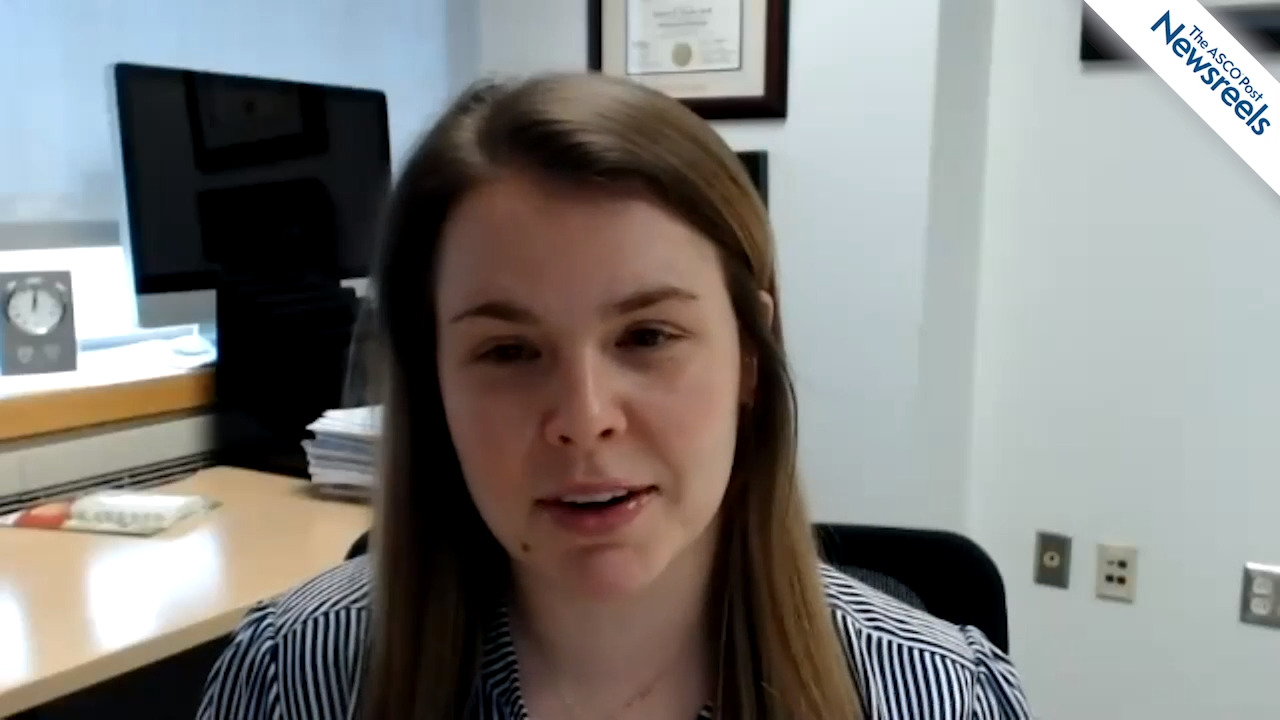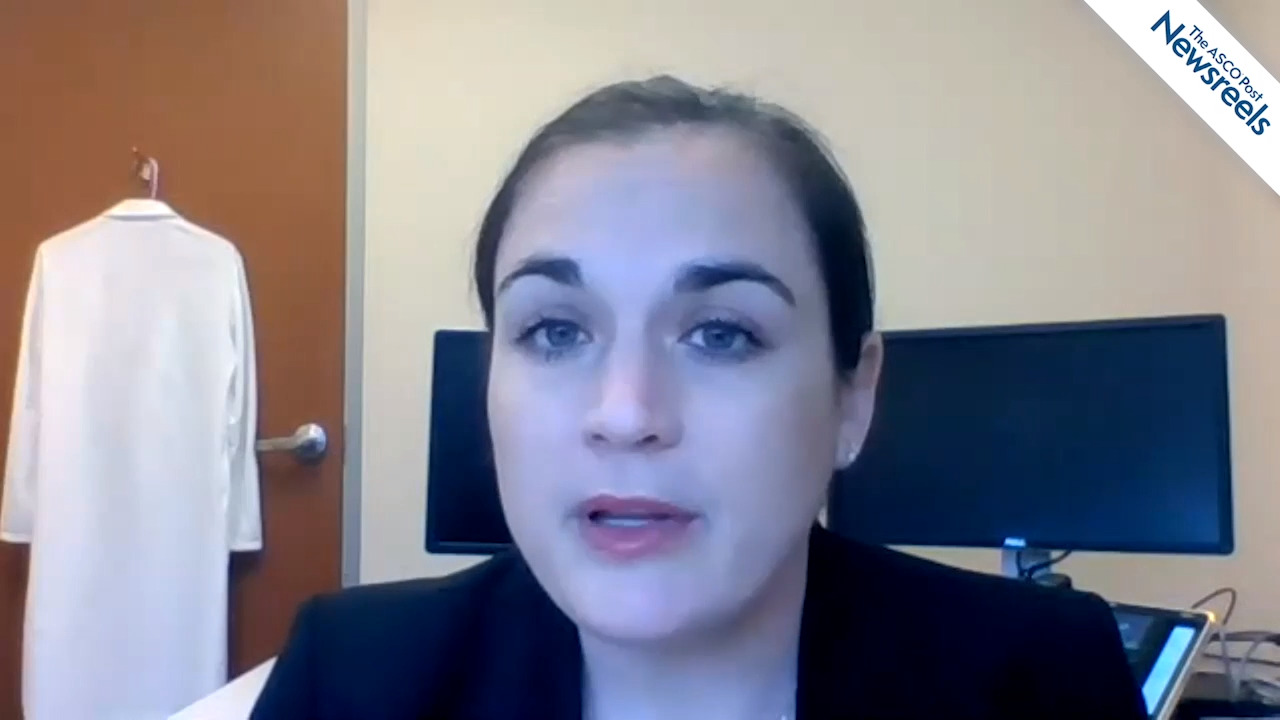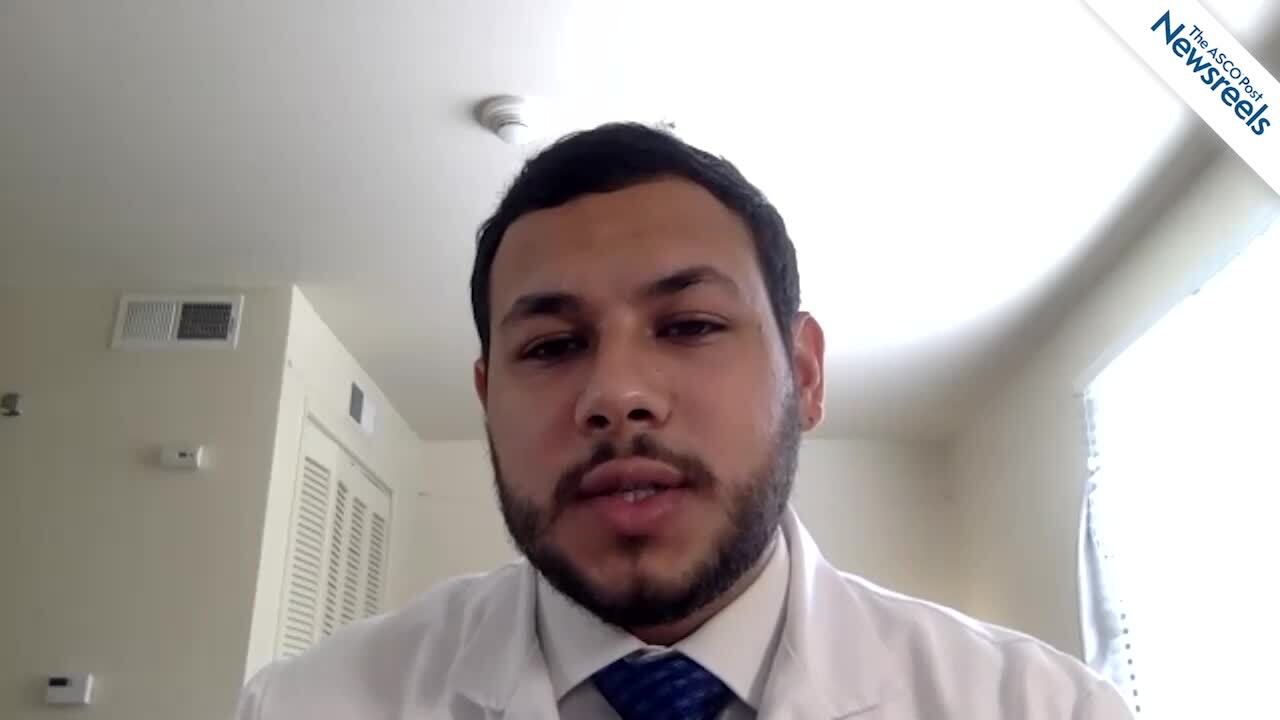Shannon N. Westin, MD, on Treating Endometrial Cancer With Enzalutamide, Paclitaxel, and Carboplatin
SGO 2021 Virtual Annual Meeting on Womens Cancer
Shannon N. Westin, MD, of The University of Texas MD Anderson Cancer Center, discusses phase II results from the ENPAC trial, which showed the combination of enzalutamide, paclitaxel, and carboplatin yielded promising clinical outcomes in chemotherapy-naive advanced or recurrent endometrioid cancer (ID # 10244).
The ASCO Post Staff
Laura Chambers, DO, of the Cleveland Clinic, discusses data showing that combining paclitaxel and cisplatin vs cisplatin alone with hyperthermic intraperitoneal chemotherapy at interval debulking surgery improved progression-free survival. There was no difference in postoperative complications, length of stay, or time to chemotherapy, but admission to intensive care units did increase.
The ASCO Post Staff
Emily Hinchcliff, MD, MPH, of The University of Texas MD Anderson Cancer Center, discusses phase II results of durvalumab (anti–PD-L1) and tremelimumab (anti–CTLA-4) administered in combination vs sequentially for the treatment of recurrent platinum-resistant non–clear cell ovarian cancer (ID #10240).
The ASCO Post Staff
Dana M. Roque, MD, of the University of Maryland Medical Center, discusses phase II results showing that weekly ixabepilone plus biweekly bevacizumab may improve overall response rate as well as progression-free and overall survival for women with platinum-resistant or -refractory ovarian, fallopian tube, and primary peritoneal cancers, a population in need of treatment choices.
The ASCO Post Staff
Morcos N. Nakhla, MS, a second-year student at the David Geffen School of Medicine at UCLA, discusses data showing that a higher surgical volume is associated with better outcomes for frail patients undergoing surgery for ovarian cancer. Over the 12-year study period, mortality decreased for all women with ovarian cancer, despite a concurrent increase in frail patients (ID #10209).
The ASCO Post Staff
Brian M. Slomovitz, MD, of Florida International University, describes how emphasizing diversity and shifting away from clinical trials at universities helped The GOG Foundation, Inc., increase patient accrual by 50% in 2020 (ID # 10215).





